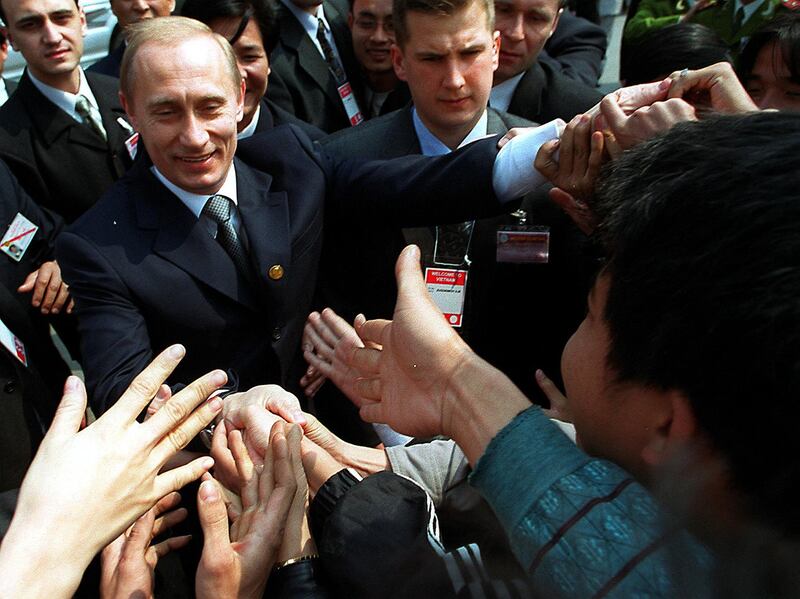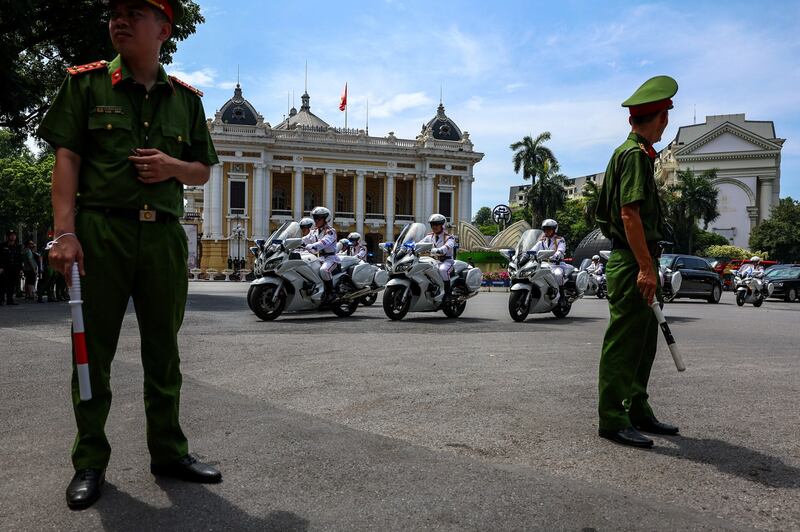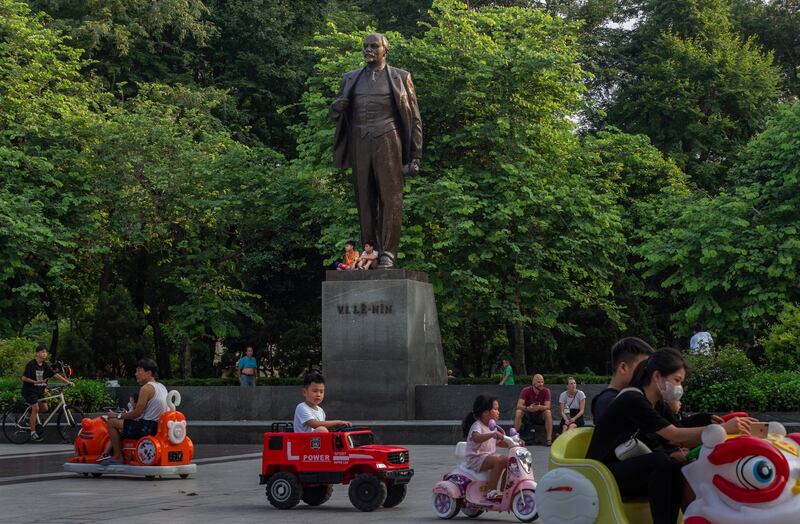On the afternoon of March 2, 2001, the packed hall at Hanoi's Vietnam-Russia Friendship Palace erupted in cheers and applause as President Vladimir Putin walked in. The energetic 49-year-old shook hands and chatted with members of the audience before delivering a warm address.
A similar gathering of alumni of Russian universities and institutes is planned in Hanoi for Putin, who is in his fifth term as Russia’s president, and on his fifth visit to Vietnam.
Yet it’s hard to expect an equally enthusiastic welcome for the Russian leader this time in a country where, though fondness for Russia remains strong, its invasion of Ukraine has eroded some support, analysts say.

Russia has a close, long-standing relationship with Vietnam and is one of Hanoi’s few comprehensive strategic partners.
However, after more than 20 years, the relationship between the old allies has changed substantially. Vietnam has adopted an open-door policy since the mid-1980s and has since normalized relations with countries it fought in the past, including China and the United States.
Hanoi takes great pride in its so-called bamboo diplomacy, that enables it to befriend former foes while maintaining old friendships.
“Putin’s visit is highly symbolic,” said Nguyen Ngoc Truong, a senior Vietnamese diplomat turned foreign affairs analyst. “It reflects Vietnam’s independent, self-reliant and multilateral foreign policy.”
RELATED STORIES
[ North Korea’s Kim promises Putin full support for Russia’s Ukraine warOpens in new window ]
[ Vietnam’s fraternal ties with Russ are put to the testOpens in new window ]
[ Bear East: RFA Special report on Russia’s influence in AsiaOpens in new window ]
“Vietnam invited U.S. and Chinese top leaders to visit last year so this visit shows once again that Hanoi is pursuing its foreign affairs principles without exception,” Truong told RFA.
“There is still a part of Vietnam’s society that is deeply Russophile, but it is shrinking. The Ukraine war has also led to a shift in the way the Vietnamese public view Russia, and Putin personally,” the analyst added.
‘Low expectations’
Putin arrived early on Thursday in Hanoi from Pyongyang where he held talks with North Korean leader Kim Jong Un to boost the ties of two countries both at odds with the West.
The Russian president is expected to spend about 24 hours in Hanoi and to meet the four most senior Vietnamese leaders – the general secretary of the Communist Party, the state president, the prime minister and the National Assembly’s chairman.
Putin’s delegation will discuss cooperation projects in various areas, including energy and defense, but no major agreements are expected.

Trade between Vietnam and Russia stands at just US$3.7 billion, lagging far behind that with the United States -- to the tune of US$97 billion -- and with China -- US$131 billion.
Russia is still Vietnam’s biggest supplier of weapons but purchases have decreased markedly over the past five years and Hanoi did not place any new orders last year.
U.S. sanctions have also made payment to Russia difficult so the two sides would have to “discuss a new financial mechanism,” according to Nguyen The Phuong, a Vietnamese political scientist at the University of New South Wales in Australia.
“It is impossible for Vietnam to wean off Russia’s weapons overnight,” Phuong said. “It still has to rely on Russia for a long time to come as it’s very hard to find alternative sources.”
Russian experts said Vietnam will also be mindful not to irk the United States too much with Putin’s trip.
“Vietnam as an export-oriented economy depends much more on the U.S. so it will act with an eye on Washington, and Beijing as those countries are much more important for Vietnam than Russia these days,” Kirill Kotkov, head of the Center for Far Eastern Countries Studies in St. Petersburg, told Russian media.
“If there is a conflict with China, for instance, Russia will not be able to support Vietnam like we did in 1979 and the Vietnamese know that,” Kotkov added, referring to a brief but bloody Sino-Vietnam border war.
Valuable partner
Vietnam is not a member of the International Criminal Court, or ICC, and so has no obligation to act on an arrest warrant it issued for in 2023 over alleged war crimes in Ukraine.
Still, a spokesperson for the U.S. embassy in Hanoi, voiced disapproval of Putin’s visit.
“No country should give Putin a platform to promote his war of aggression and otherwise allow him to normalize his atrocities,” the spokesperson told Reuters when asked about the impact of the visit on ties with the U.S.
“If he is able to travel freely, it could normalize Russia's blatant violations of international law.”
Despite such U.S. misgivings, Hanoi remains a steadfast friend and partner to Moscow, analysts say.
“Vietnam has never joined any anti-Russian forces and blocs, nor has it supported any embargoes or sanctions aimed at isolating Russia,” Russian analyst Grigory Trophymchuk, told the Vietnam News Agency. “For the Russian Federation, this is particularly valuable from a geopolitical point of view.”

Putin’s visit comes as Vietnam is going through an unprecedented upheaval in its domestic politics, largely because of an anti-corruption campaign, called “blazing furnace”, initiated by Communist Party chief Nguyen Phu Trong.
The campaign, and the infighting it has generated, has led to the departure of six members of the party’s Politburo and the ascent of To Lam, a former minister of public security, to state president.
General Secretary Trong – and not Vietnam’s president – is the host of Putin’s trip, as well as of the previous trips by U.S. President Joe Biden and Chinese President Xi Jinping.
That's intended to show that the general secretary position is still the most powerful and the Communist Party is the real ruler – a boost for its legitimacy at a turbulent time
Trong may not be able to have a meaningful meeting with Putin on Wednesday because of his ailing health but rising star To Lam, who is said to be particularly fond of Russia, will ensure a warm reception. Both Putin and Lam have a background in the communist security system.
Edited by Taejun Kang.
